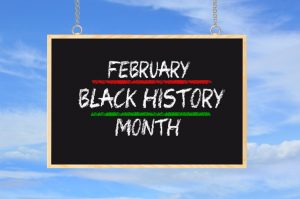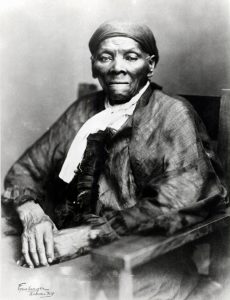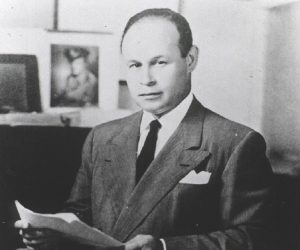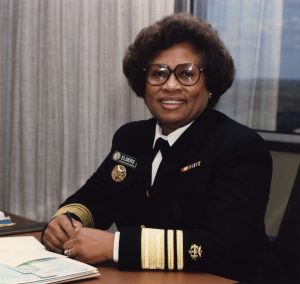
As we celebrate Black History Month, we wanted to take a moment to recognize the many untold and under-told stories of African-American and Black Americans who have done so much to contribute to the healthcare field.
While there is more diversity in American healthcare and the nursing workforce than ever before, the numbers are still not on par with the nation’s overall demographics, which means we should be trying to recruit more African-American and Black nursing students, nurse leaders, nurse educators, and Travel Nurses, as well as doctors, administrators, and other healthcare positions. According to the 2015 National Nursing Workforce Study, while only 19.5 percent of nurse respondents reported they were of a racial or ethnic minority, diversity rates were higher among younger nurses — which is a good sign of things to come in the industry!
And while diversity and inclusion are important to African American and Black individuals seeking to build their careers, studies show that it also makes a major impact on patient care and health outcomes. White Americans have a level of privilege that insulates them from the reality that others may be treated differently when seeking healthcare, but it’s a very real issue and one that commonly results in very real negative health outcomes for African Americans, Black Americans, and people of many other marginalized identities.
Minority Nurse said it best in a 2017 blog post: “Many patients feel comfortable with someone who looks like them, but, more importantly, a diverse workforce helps spread culturally competent nursing practices. The entire nursing staff may not represent the ethnic diversity in a given setting, but they can learn from those who might understand certain cultural traditions, languages, or practices. All that understanding makes for better patient care and outcomes and an especially effective nursing staff.”
So — while this space is too narrow for a full breakdown — we understand that there are many reasons supporting the importance of diversity and inclusion in healthcare. Now let’s celebrate some of those trailblazing Black nurses and others in healthcare who fought against intolerance, racism, and a system that attempted to shut them out!
Sojourner Truth, famous for her work as an abolitionist and women’s rights advocate, originally worked as a nurse for the family that owned her and later at the National Freedman’s Relief Association, where she worked to improve patient care quality and conditions. She also advocated for financial support for nurse training programs.

Harriet Tubman, another name you know well for her work to free slaves, served as a Civil War nurse wielding her vast knowledge of herbal medicine to save many soldiers from smallpox and dysentery.
Mary Eliza Mahoney, fought racial prejudice to become the first black registered nurse in 1879. She also co-founded the National Association of Colored Graduate Nurses and is the namesake for the ANA’s prestigious Mary Mahoney Award.
Adah Belle Samuel Thoms worked as acting director at the Lincoln Hospital and Home School of Nursing, and despite her great work she was never official named director due to the racism she faced. She was Mary Eliza Mahoney’s co-founder counterpart of the National Association of Colored Graduate Nurses, in addition to fighting for equality for Black nurses in the American Red Cross and U.S. Army Nurse Corps.
Susie King Taylor, fearless volunteer nurse for Union Army during the Civil War who told her story of fortitude in the face of discrimination in her memoir, Reminiscences of My Life in Camp with the 33rd US Colored Troops.
Mabel Keaton Staupers, fought against segregated nurse training programs and was a proponent of racial equality in the U.S. Army and American Nurses Association, among other organizations.
Jesse Sleet Scales was America’s first Black public health nurse and she encouraged the hiring of many others. She’s known for pioneering what is contemporarily known as culturally appropriate care.
Rebecca Crumpler was the first Black woman to earn a medical degree from a U.S. college when she graduated from Boston’s New England Female Medical College in 1864.
Daniel Hale Williams was one of the first doctors in the U.S. to perform open-heart surgery in 1893. He also founded the Provident Hospital and Training School for Nurses, which was the United States’ first racially integrated nursing and intern program.
Hazel W. Johnson-Brown, faced discrimination when seeking an education, but persevered to obtain her bachelor’s, master’s, and PhD, as well as a highly decorated military career where she became the first Black woman promoted to brigadier general, the first Black woman to head the U.S. Army Nurse Corps, and was twice named Army Nurse of the Year.
Mary Elizabeth Carnegie, who had established a baccalaureate program for Black nurses in 1943 at Virginia’s Hampton University, became the first Black Nurse elected to serve the board of directors of a state nursing association when she earned that role in 1948. She also served as president of the American Academy of Nursing.

Charles Drew was a pioneering doctor who was the first to use blood plasma to store blood for transfusions. He was also the first Black examiner for the American Board of Surgery.
Elizabeth Lipford Kent, was the first Black nurse to earn a PhD in nursing in 1955. (In 1988, Randolph Rasch became the first Black man to earn a PhD in nursing.
Estelle Massey Osborne was the first Black woman to earn a master’s in nursing in 1931 and later in her career became the first Black faculty member at NYU and the first Black person to serve on the ANA Board of Directors. She also fought to lift the color ban in the U.S. Army and Navy, and to increase the number of schools that accepted Black pupils.
William Augustus Hinton, the son of former slaves, was the first Black professor at Harvard Medical School and was internationally known for his amazing research.
Betty Smith Williams was an activist and educator who became the first Black person to teach at the college level in the state of California. She also co-founded the National Black Nurses Association in 1971.
Vernice Ferguson was the first Black nurse to become Chief of the Nursing Department at the National Institutes of Health in 1972.
Eddie Bernice Johnson was the first nurse elected to the U.S. Congress in 1972. (The first Black female physician elected to Congress was Donna Christian-Christensen.)
Barbara Nichols became the first Black president of the ANA in 1978.
Alexa Canady was the first Black female neurosurgeon, after she completed her residency in 1981.
Mae C. Jemison was a doctor who would become the first Black woman in the U.S. astronaut training program. In 1992, she became the first Black woman in space!

Jocelyn Elders was the first Black female physician appointed to Surgeon General when she took her post in 1993. She’s previously served as director of the Arkansas Department of Health.
Lonnie Bristow was the first Black doctor elected to serve as president of the American Medical Association in 1994.
Regina Benjamin was the first Black woman elected to the American Medical Association board of trustees in 1995. In 2002, she became the first Black female president of Alabama’s State Medical Association. She was appointed the 18th Surgeon General in 2009.
What an amazing, inspiring bunch — and just the very tiny tip of the iceberg of the many contributions to healthcare and nursing made by so many. With their shining examples, may Black Americans and African Americans continue to progress in the realm of healthcare, and may all Americans support them and foster their successes in this endeavor! Let’s remember this lesson every day, but for now, Happy Black History Month!